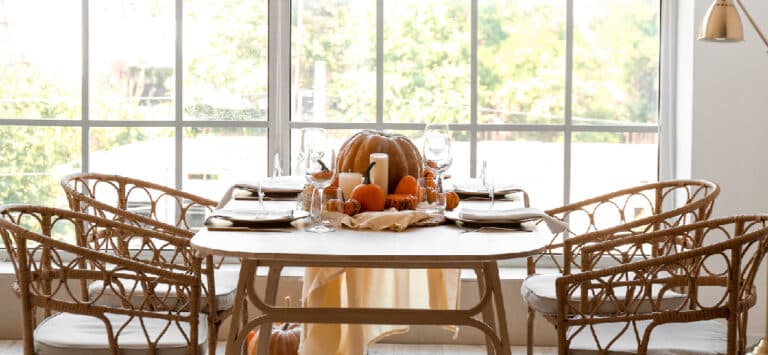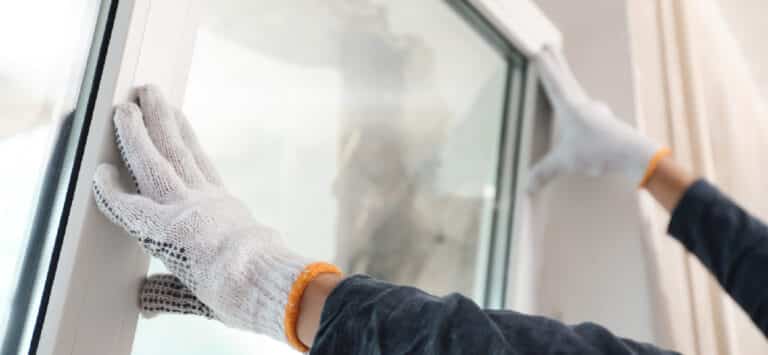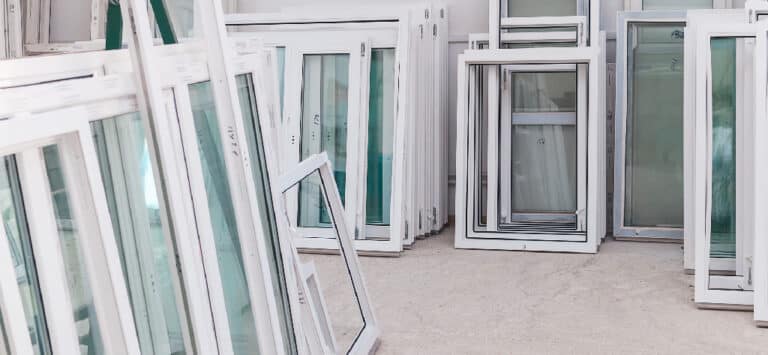5 Herbs to Grow in Your Kitchen Windows Year-Round

Gardening doesn’t have to be confined to the outdoors. With the right kitchen window, you can cultivate a thriving herb garden that adds fresh flavors to your cooking and a burst of greenery to your space. The key to a successful indoor herb garden lies in choosing the right herbs and the perfect windows. In this blog, we’ll explore five herbs you can grow year-round in your kitchen windows and link back to the ideal window selection at Mister Window.
1. Basil: The King of Herbs
Basil is a beloved herb in many cuisines, known for its aromatic leaves and versatile use in dishes like pesto, salads, and pastas. Basil thrives in bright light, needing at least six hours of sunlight per day, making a sunny kitchen window perfect for its growth. It requires moist but not waterlogged soil, so regular watering is essential to prevent it from drying out. Basil prefers warmer temperatures, ideally between 70-80°F, and is sensitive to cold drafts.
For indoor growth, using a pot with good drainage and rich, well-draining soil, such as a terracotta pot, can help prevent overwatering. Regularly pinching off the tops will encourage bushier growth and prevent flowering, which can make the leaves bitter. Fresh basil adds a delightful flavor to dishes and can be used in various recipes, from classic Italian to Thai cuisine.
2. Mint: The Refreshing Herb
Mint is an easy-to-grow herb that can invigorate your drinks, desserts, and savory dishes with its cool, refreshing taste. It grows well in indirect light and can adapt to various lighting conditions, making it suitable for different spots in the kitchen. Mint enjoys consistently moist soil, so regular watering is necessary to keep it hydrated. It prefers cooler temperatures, around 55-70°F, which can be easily maintained in a kitchen setting.
Growing mint in a separate pot with rich, well-draining soil is advisable, as it can become invasive. Regular trimming will encourage new growth and prevent the plant from becoming leggy. Mint is perfect for teas, mojitos, salads, and desserts, and its soothing properties can also aid digestion.
3. Thyme: The Versatile Herb
Thyme is a robust herb with small, fragrant leaves, perfect for flavoring soups, stews, meats, and more. Thyme requires at least six hours of sunlight daily, making a sunny kitchen window ideal. The soil should be allowed to dry out slightly between waterings to prevent root rot, as thyme prefers well-draining soil. Thyme thrives in warmer temperatures, around 65-75°F.
Using a small pot with good drainage and a sandy, well-draining soil mix is ideal for thyme. Regular harvesting will encourage bushier growth and prevent the plant from becoming woody. Thyme adds a savory, earthy flavor to dishes and has antibacterial properties, making it a great addition to your kitchen.
4. Chives: The Mild Onion Herb
Chives are a mild, onion-flavored herb that can be snipped fresh for garnishing soups, salads, and more. Chives prefer bright light and need at least six hours of sunlight per day. Keeping the soil evenly moist but avoiding waterlogging is crucial for their growth. They grow best in cooler temperatures, around 55-75°F.
Planting chives in a pot with good drainage and rich, well-draining soil is essential. Regular trimming will keep them productive and prevent them from flowering. Chives add a delicate onion flavor to dishes and are rich in vitamins A and C.
5. Parsley: The Nutritious Herb
Parsley is a nutrient-packed herb that adds a fresh, vibrant taste to many dishes. Parsley needs full sunlight, ideally around six hours per day, and requires consistently moist soil, but not waterlogged. It grows well in temperatures between 60-70°F.
Using a deep pot with good drainage and rich, loamy soil is ideal for parsley. Regularly harvesting parsley leaves will encourage new growth and prevent the plant from going to seed. Parsley is packed with vitamins and can enhance the flavor and appearance of various dishes, from soups to salads.
Choosing the Perfect Windows for Your Indoor Herb Garden in Florida
The success of your indoor herb garden greatly depends on the type of windows you have. The right windows can provide the necessary light, temperature, and ventilation for your herbs to thrive.
Florida homes benefit from abundant sunlight. South-facing windows are ideal as they receive the most sunlight throughout the day. East and west-facing windows can also work, providing bright, indirect light. Proper insulation is crucial to maintain a stable temperature for your herbs. High-quality, energy-efficient windows can help keep the indoor temperature consistent, preventing cold drafts in winter and excessive heat in summer. This is particularly important in Florida, where temperatures can vary.
Good ventilation is important to prevent mold and mildew from developing on your plants, especially in Florida’s humid climate. Windows that can be easily opened allow for proper air circulation, which is beneficial for the health of your herbs. Double or triple-glazed windows provide better insulation and can help in maintaining the ideal growing conditions for your herbs year-round. These windows also reduce energy consumption, making them an eco-friendly choice.
For the best window options to enhance your indoor herb garden, check out the selection at Mister Window. They offer a variety of high-quality windows that can help you create the perfect environment for your indoor garden.
Creating the Ideal Indoor Herb Garden Setup
Choosing the right pots and soil is the first step. Opt for pots with good drainage to prevent waterlogged soil. Terracotta pots are a great choice as they are porous and allow for better air circulation. Use a high-quality, well-draining potting mix. You can add perlite or sand to improve drainage if necessary.
Watering your herbs consistently is crucial, but avoid overwatering. It’s better to let the soil dry out slightly between waterings. Watering at the base of the plants helps prevent fungal diseases and mold growth on the leaves. Fertilize your herbs once a month with a balanced, water-soluble fertilizer, and choose a fertilizer specifically designed for herbs or houseplants.
Regularly prune your herbs to encourage new growth and prevent them from becoming leggy. Harvest herbs in the morning when their essential oils are most concentrated. Use sharp scissors or pruning shears to avoid damaging the plants. Keep an eye out for common pests like aphids, spider mites, and whiteflies. Regularly inspect your plants for signs of infestation and use natural pest control methods like neem oil or insecticidal soap to keep pests at bay.
Integrating Your Herb Garden into Your Kitchen Decor
An indoor herb garden not only provides fresh herbs for cooking but also enhances the aesthetic appeal of your kitchen. You can arrange your herb pots on the window sill where they can receive ample sunlight. Use decorative pots that complement your kitchen decor to add a touch of style.
Consider using hanging planters or wall-mounted shelves to create a vertical herb garden, a great space-saving solution for small kitchens. Hang the planters near a sunny window to ensure your herbs get enough light. Alternatively, use a small, wheeled cart to create a mobile herb garden that you can move around your kitchen as needed. Choose a cart with multiple tiers to maximize space and grow a variety of herbs.
Growing herbs in your kitchen windows is a rewarding and practical way to have fresh ingredients at your fingertips. By selecting the right herbs and providing them with the ideal growing conditions, you can enjoy a year-round supply of fresh flavors. To ensure your indoor garden thrives, it’s essential to have the perfect windows that offer the right amount of sunlight, insulation, and ventilation. For the best window options, visit Mister Window and explore their range of high-quality windows designed to enhance your indoor gardening experience.
Whether you’re a seasoned gardener or a beginner, these tips and insights will help you create a thriving herb garden in your kitchen, adding both flavor and beauty to your home.
Pony Loka
August 27, 2024
Share Article




